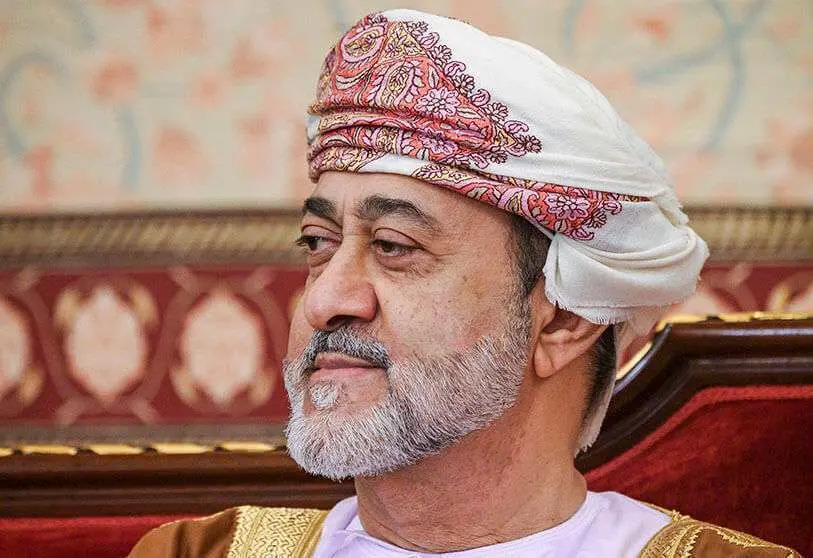Oman at the crossroads

The Sultanate of Oman, with its capital in Muscat, is a country located in the extreme west of the Arabian Peninsula. The Sultanate's location is strategically crucial, as the Persian Gulf and the Indian Ocean lie off its coast in the Strait of Hormuz. 63% of the world's maritime oil trade passes through this strait, according to the US Energy Information Administration in 2017. However, Oman's oil and gas reserves are more modest than those of its rich neighbours in Saudi Arabia, Qatar or Iran, which limits the influence the sultanate could hope to have in the Middle East. This is a chronically unstable region, whose conflicts are largely conditioned by the four-decade struggle between the two most important countries in the area, Saudi Arabia and Iran.
No one understood the regional dynamics like the Sultan of Oman Qaboos bin Sa'id, who died on 10 January 2020 at the age of 79 after a long illness. Sultan Qaboos ascended to the Omani throne in 1970 thanks to a coup d'état supported by the United Kingdom, displacing his own father Sultan Sa'id. During the fifty years in which Qaboos reigned over Oman, the economy of this country skyrocketed: from 1980 to 2015 the national GDP increased fourteenfold. On the other hand, Oman today remains a totalitarian state in which the sultan holds virtually absolute power and in which the two houses of parliament have little more than an advisory role.
The death of Qaboos triggered concerns in Oman due to the absence of the sultan's descendants. His death came just a week after the assassination of Iranian General Qassem Soleimani by the United States, further destabilising the Middle East. However, a successor was quickly appointed, Haitham bin Tariq, Qaboos' cousin and, like him, a quiet and diplomatic man educated in England. The new Sultan Haitham is expected to continue his predecessor's path. However, Oman faces political and economic challenges that will test its strength and, by extension, that of the Middle East.
Sultan Qaboos has navigated skilfully through the turbulent seas of Middle Eastern regional politics, moderating the worst impulses from both Saudi Arabia and Iran. In the Sultan's own words, Oman became the Switzerland of the Middle East. Under his rule Oman emerged as the main mediator in a region ravaged by constant tension and conflict. Oman became one of the only bridges between the Saudi monarchy and the regime of the Ayatollahs in Iran. After all, Oman is in the shadow of these two great powers, and the outbreak of a large-scale conflict could have dramatic effects on the sultanate.
Maintaining the fragile balance of power in the Middle East is therefore of vital importance to Oman. Moreover, the economy of this country of 4.9 million inhabitants is highly dependent on the global oil market: crude oil exports accounted for 74% of its exports in 2019. Avoiding clashes between Saudis, Iranians and Americans in the Persian Gulf that could lead to a destabilisation of the oil market is therefore of crucial importance for keeping its economy afloat.
In recent years, Oman has been working on the so-called Agenda 2040, aiming to diversify the economy to prevent its economic fortunes from being forever tied to oil. Attracting tourism and foreign investment are crucial elements of this strategy. For the moment, China has already invested 11 billion dollars in the Omani port of Duqm, which aspires to become a huge industrial and economic centre and therefore rival cities like Dubai or Abu Dhabi in the future.
In short, Qaboos was able to exploit his country's position as a neutral mediator. After the outbreak of the bloody civil war in Yemen in 2011, Oman declared itself neutral, and has in fact acted as the main mediator between the conflicting parties. Oman is also one of the few Arab countries to have received an official visit from an Israeli Prime Minister, hosting Benyamin Netanyahu in 2018. Western countries have also recently benefited from Oman's unique foreign policy: in 2016 the Sultan's government mediation was key to convincing Iran to release a Canadian academic who had been imprisoned for nearly four months. Sultan Qaboos cultivated diplomatic relations with all Western countries throughout his tenure, as he did not give up building bridges with Iran.
The Omani mid-term position was key in the months before the signing of the JCPOA, the historic nuclear agreement between Iran and several Western countries, including the United States and the European Union. Oman became virtually the only channel of communication between the American and Iranian governments during the negotiations that led to the agreement in 2015, under which Iran renounced its nuclear program for the next 15 years. In fact, it was Omani officials who, according to former American ambassador to Oman Richard Schmierer, suggested the possibility of Washington bringing positions closer to Tehran on the nuclear issue.
It is impossible to know if the new sultan will be able to claim anew Oman's role as a mediator to improve relations between Iran and the United States, especially after the escalation of the conflict between the United States and Iran, courtesy of Donald Trump's aggressive foreign policy, which forced his country out of the nuclear treaty. Oman's political future will undoubtedly be linked to its economy, which is expected to decline due to the coronavirus epidemic and the collapse of the oil price on which it still depends so much. The progressive destabilisation of the Middle East leaves Oman at a difficult crossroads. And for the first time in fifty years, the sultanate will have to face the new challenges without the presence of Qaboos, precisely when the moderation, pragmatism and mediation he displayed are more necessary than ever.


